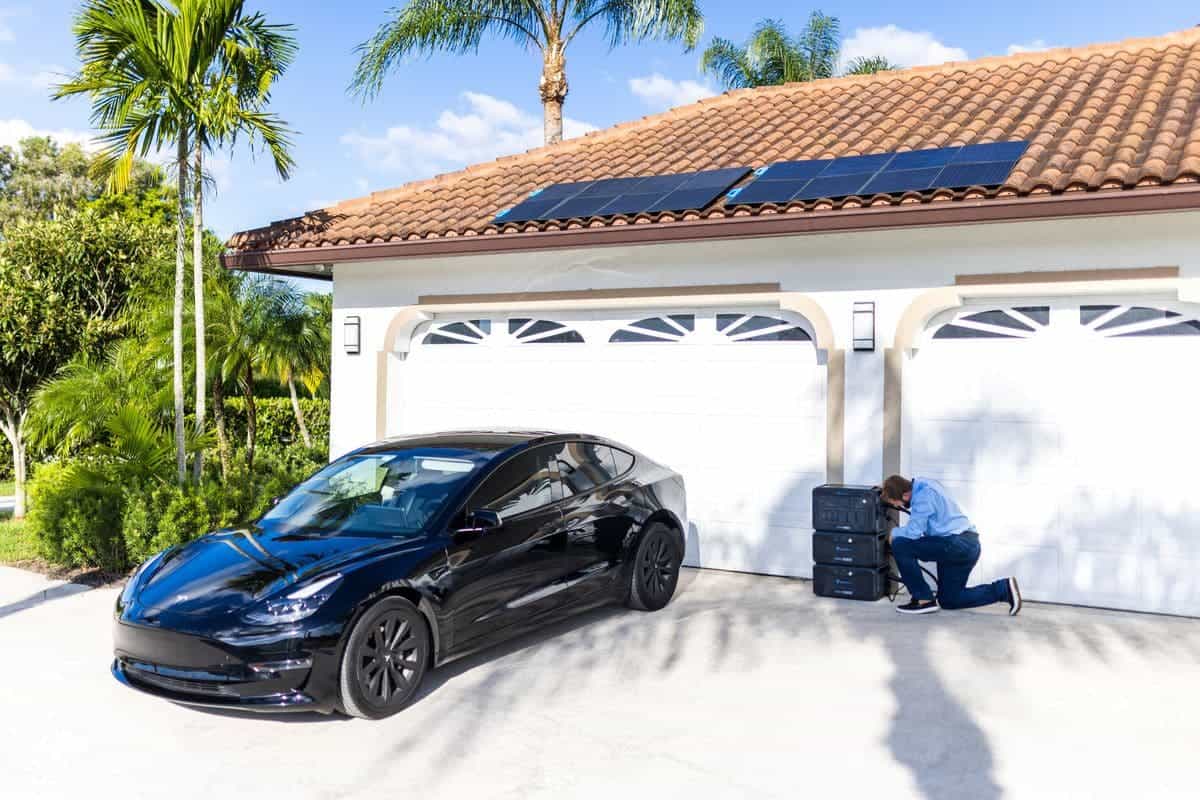In times of crisis like power outages and for dependable energy supply during outdoor escapades, generators play a pivotal role. When navigating the realm of generators for these scenarios, two prominent contenders emerge: solar generators and fuel generators. This article undertakes a comprehensive comparison of these two alternatives to empower you in making a well-informed decision.
Understanding Generator Mechanisms
Solar generators harness the sun’s energy to generate electricity, encompassing components like an inverter, MPPT controller (Maximum Power Point Tracking), battery, and photovoltaic panels (PV) that convert sunlight into usable energy. This energy is stored in the battery for subsequent use.
Fuel generators, also known as conventional generators, convert gasoline’s chemical energy first into mechanical energy and then into electrical energy. Comprising an engine, alternator, oil tank, and various moving parts, they consume fuels to deliver instant power.
Contrasting Solar and Fuel Generators
Safety
Solar generators are generally deemed safer due to their lack of flammable fuels, thereby mitigating risks linked to fuel leaks and harmful emissions. However, improper charging can still result in explosions.
On the other hand, fuel generators run on combustible fuels, introducing certain safety hazards. Additionally, they emit exhaust fumes and are unsuitable for indoor use.

Functionality
Solar generators provide various AC and DC power options, catering to modern devices. Nonetheless, they might have limitations in running high-power equipment or during extended periods of low sunlight.
Fuel generators offer robust power output, suitable for operating larger appliances, albeit with limited outlets. They consistently provide power regardless of weather conditions or time of day.
User Experience
Solar generators operate quietly and are user-friendly, requiring minimal maintenance. Furthermore, they offer enhanced portability across different sizes.
Fuel generators can be noisy and boast a complex system demanding regular refueling and maintenance. Although they come with steel frames or wheels for durability and mobility, their movement remains cumbersome and risky.
Cost
Solar generators entail higher initial costs owing to advanced solar and battery systems. Yet, once installed, they capitalize on free solar energy and entail fewer long-term operational expenses.
Fuel generators possess lower upfront costs but necessitate ongoing expenditures for fuel, which can accumulate over time.
Gizchina News of the week
Sustainability
Solar generators align with environmental sustainability by harnessing renewable solar energy. They do not emit greenhouse gasses or contribute to air pollution.
Fuel generators rely on non-renewable fossil fuels, leading to pollution and climate change.
Determining Your Generator Requirement
Choosing the right generator is straightforward once you assess your power needs and specific application scenarios. Here are two common scenarios to consider.

Scenario One: Residential Backup Power for Power Outages
For areas with infrequent disasters but potential major weather events yearly, opting for a gas generator is wise. It provides cost-effective instant power for sporadic use during emergencies. Conversely, for regular use, exploring solar generators like BLUETTI’s AC300 and AC500 models is recommended. With outputs ranging from 3,000W to 5,000W, they offer an uninterruptible power supply (UPS) function that activates within 20 milliseconds of a blackout, ensuring seamless transition. Even during prolonged winter outages, they perform well, delivering power for multiple days. Their capacity can be expanded through additional battery packs, allowing customization from 3,072Wh to 18,432Wh.
Scenario Two: Portable Power for Outdoor Activities
Picture embarking on a weekend camping trip. As you set up camp, the need arises to charge your phone, power a portable speaker for music, and keep a mini-fridge operational. Opting for solar generators is the ideal choice. They provide diverse outlets for device connectivity and harness solar panels to gather free solar power. Market offerings such as the BLUETTI AC200P, with its 2,000W power and 2,000Wh capacity, serve as outstanding portable power hubs enhancing outdoor experiences.
Conclusion
Selecting between solar and fuel generators necessitates a thoughtful consideration of your unique needs and the pros and cons of each option. Solar generators emerge as a prominent power source for both home backup and outdoor endeavors. They eliminate risks tied to flammable fuels, offer versatile power options, operate silently, and demand minimal upkeep. Despite their higher upfront costs, they tap into renewable energy, incurring lower long-term operational expenses. Conversely, fuel generators provide robust power for larger appliances but come with safety risks, regular maintenance needs, and contribute to pollution and higher ongoing costs.





